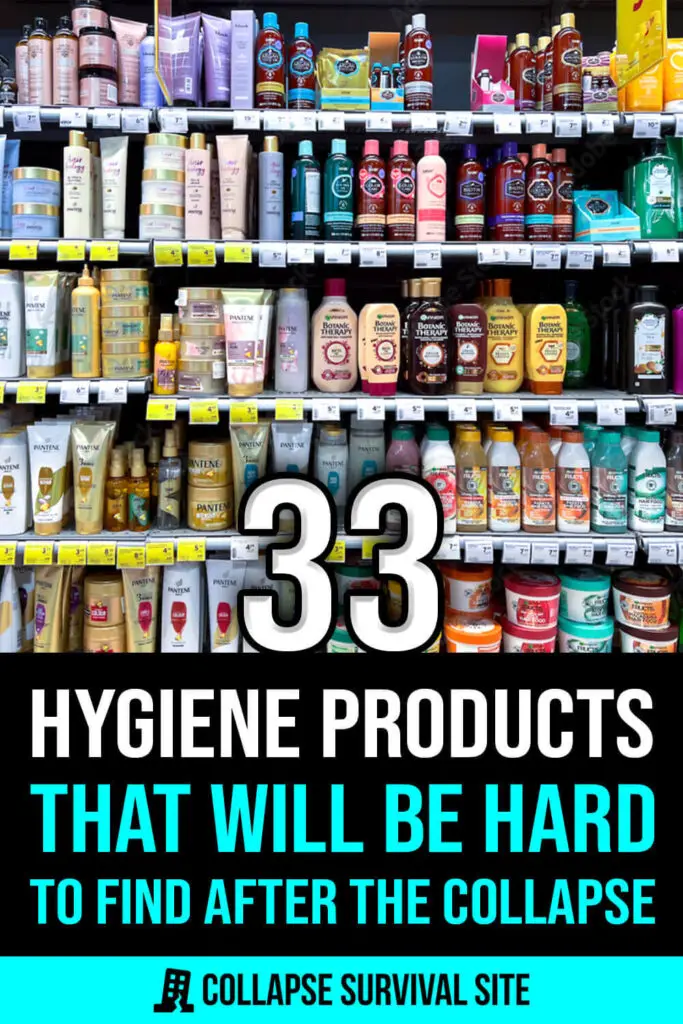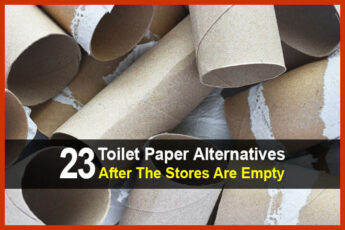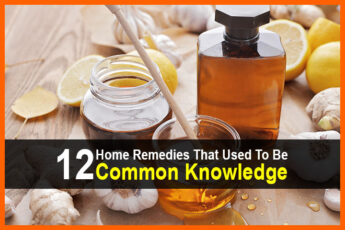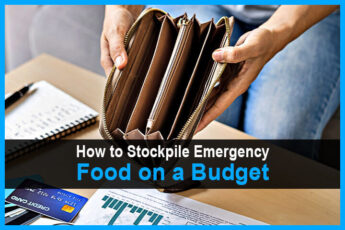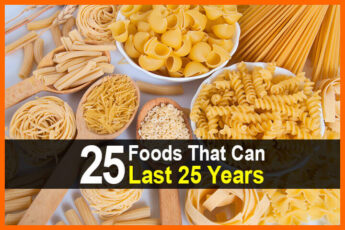Estimated reading time: 1 minute
Prepping to survive a disaster often tends to focus on food, water and first aid. Those are all needed, but something that is even more important than food is hygiene supplies. It’s not about looking pretty and smelling good—it’s a real life or death situation. Poor sanitation can lead to death. Without running water or electricity to purify water, things become very dire.
Poor sanitation leads to disease and illnesses that could have been prevented with a little soap and water. Without regular garbage pickup, trash is going to pile up which attracts rodents and all kinds of pests. Pests bring disease.
We don’t think much about sanitation right now. We flush the toilet, and the waste is carried far away from us never to be seen or thought of again. When we’re thirsty, we run the tap. Now, you might have bottled water, but how long is that going to last?
Do you have enough to wash your hands and body to keep healthy? What about cooking? When you really start to think about how much we take for granted, it will send you down a rabbit hole. Think about some times in recent history that poor sanitation led to another disaster on top of the first disaster.
Want to save this post for later? Click Here to Pin It On Pinterest!
In 2010, Haiti suffered a major earthquake that killed hundreds of thousands of people, but the earthquake’s aftermath continued to wreak havoc on the population. A cholera outbreak caused by poor sanitation claimed another nine thousand lives and sickened close to a million.
The outbreak could be blamed on human fecal matter getting into the water supply. This is blamed on people needing to go but not taking care of business in a safe manner.
Typhoon Haiyan in the Philippines in 2013 is another example of a disaster leading to another disaster brought on by poor hygiene. The water supply was contaminated and people got sick because there weren’t proper bathrooms available. People were forced to live in makeshift shelters with no plumbing.
Imagine not having toilet paper or water available to wash your hands after using the bathroom and then sitting shoulder to shoulder with a hundred other people who are in the same boat. If that sent a shiver of revulsion down your spine, it should have.
Again, we can look at Hurricane Katrina for another example of poor hygiene. People were forced together to share small spaces that were not adequately cleaned. It wasn’t just the water that was bad. Sick people were living in close quarters with healthy people. People couldn’t properly wash their hands or even breathe clean air leading to rampant spread of flu and other contagious illnesses.
There are countless examples that point out the need for good sanitation following a disaster on any level. The disease that follows a natural disaster is just as deadly, but unlike natural disasters, it’s completely preventable.
You’ll want to stock up on the items on the list below now, before a disaster. Surviving an earthquake, economic collapse or a grid down situation is only half the battle. You have to be ready to survive the long haul while life is rebuilt.
1. Toilet Paper
Toilet paper is a basic necessity for personal hygiene, toilet paper could quickly become scarce if production and distribution networks are disrupted. People would need to find alternative ways to maintain cleanliness.
We already lived through this once. Hoarding toilet paper isn’t a terrible thing when there is a ready supply. Now some people are going to say they could use family cloths or whatever, but without a washing machine to toss those into or a steady supply of rags, toilet paper is a better option. If worse comes to worse, than by all means use old t-shirts.
2. Soap
Soap is crucial for handwashing and maintaining overall cleanliness. A lack of soap could lead to increased risk of infections and illnesses. Anti-bacterial soap is not necessary. Studies show it isn’t any more effective than standard soap at cleaning. Buy what you like.
3. Toothpaste and Toothbrushes
These are critical, along with floss. Dental hygiene products might become difficult to find, which could result in oral health issues if proper care is not maintained.
A bad tooth can easily become a serious problem if it becomes abscessed. Toothbrushes and toothpaste are cheap enough to stockpile. They could become handy barter items as well.
4. Feminine Hygiene Products
These are a must. Items like tampons and sanitary pads could be hard to come by. We’ve seen this during the pandemic. Stock up. They don’t expire.
5. Shampoo and Conditioner
Very important. While they may not necessarily be considered a survival item, clean hair can make a person feel a lot better. People with dry or oily scalps may be prone to itching which can lead to sores and that can be a quick trip to infection.
6. Disposable Diapers
Diapers are one way to help keep things clean. Cloth diapers will need to be washed regularly and they will need to be washed away from the rest of the family’s clothes to keep things from being contaminated with fecal matter. Water will be at a premium.
7. Razors
Razors aren’t necessarily needed for survival, but it can help a beard that might become an issue if regular hygiene isn’t an option. Personal grooming can go a long way to making people feel better in general.
8. Deodorant
Deodorant is not a critical item for survival, but it makes life a little better. It is very possible you will be living with additional family, friends and or neighbors. Sticky, stinky bodies are unpleasant, and you might even attract pests.
9. Contact Lenses and Solution
These are going to be key for those who rely on corrective lenses to see. If you can get extra pairs, do it. Make sure you have plenty of solution to keep from injuring an eye with dry lenses.
10. Cleaning Supplies
These are an absolute must. Bleach products are going to lose potency, but they are still a crucial part of any stockpile. You’ll need to keep surfaces clean to make up for what will undoubtedly be a lack of handwashing. Disinfectant wipes are convenient for wiping down counters, doorknobs and anything else.
11. Laundry Detergent
Detergent is an extra perk. You have to clean your clothing to get rid of the bacteria, viruses and other germs that will be clinging to the fabric. However, it doesn’t have to be actual laundry detergent. You can stock the supplies and make your own or stock Borax powder.
12. Medicinal and Antibacterial Ointments
Antibacterial ointments and creams are going to be needed to keep wounds clean. Antibiotic ointment isn’t the only option. Think about some of the more natural options like colloidal silver, tea tree oil and raw honey.
13. Hairbrushes or Combs
A hairbrush or comb keeps the hair neat and tidy. If there are infrequent washings, the brush can help get rid of whatever might be stuck in the hair while preventing serious knots and tangles.
14. Baby Wipes
They’re not just for babies. While parents of young children will want to have wipes on hand for diaper duty, they can also be very handy for wiping faces and cleaning off hands. If toilet paper isn’t an option, wipes will do.
15. Towels and Washcloths
Towels and washcloths are needed to get clean when you don’t have a shower or bathtub. Taking a sponge bath is a way to save on water while staying clean.
16. Lotion and Moisturizers
Lotions are a luxury, but they can also go a long way to keeping your skin healthy. Healthy skin is not going to be dry and cracked and a prime target for infection.
17. Nail Care
Nail care is important for hygiene. Nails can be filled with germs and nasty stuff. Keeping nails clean and trimmed will prevent accidental scratches. If you need to wear gloves to clean up or deal with a sick person, you don’t want a nail slicing through your glove.
18. Hand Sanitizer
Hand sanitizers are an extra line of defense. There is no replacement for handwashing, but having sanitizer between handwashing is a good idea. Think back to the pandemic and how we all focused on what we touched. Doors, faces, even pulling out a chair can put your hands in contact with someone else’s poor hygiene.
19. Baking Soda
Baking soda is one of those magical things that serves multiple purposes. It’s not just for cooking. It’s an amazing cleaning agent.
20. Nitrile Gloves
Nitrile gloves are a must when you are cleaning up the family’s latrine or picking up trash from your home. If you are dealing with a sick person or an injured person, gloves protect you and them.
21. A Clothes Washer
A way to wash clothes will be necessary to clean dirty clothes. There are several options for this. You can make your own with a five-gallon bucket and a toilet plunger or buy a hand washer. An old-fashioned washboard will also do.
22. Disposable Cutlery and Plates
Paper plates and plastic utensils can be a great way to save water and make sure you are always eating off clean surfaces. The disposable plates and cutlery can be burned and keep down the amount of trash you have to deal with.
23. Portable Toilet
A portable toilet can be anything from a bucket filled with kitty litter or even sand that will be changed out when needed or the kind you would use for camping. Remember the earlier examples—pooping in the wrong place is deadly.
24. Solar Shower
A solar shower means you get to take a warm shower. Again, there are a couple of options. The camp shower set ups that include a plastic hut of sorts are great. If not, you can use the bag hung from a tree. There are plenty of ways to rig your own as well.
25. Trash Bags!
You cannot have enough trash bags. An assortment of lawn bags, carpenter strength bags and typical kitchen bags are a good idea. Trash is going to be one of your biggest hurdles.
You can’t invite bugs and mice into your house or tent or whatever. Burying the bags or taking them to a landfill, makeshift or otherwise will help keep your home tidy and free of pests.
26. Water Purification Tablets
Water purification tablets are going to be crucial if you don’t have your own private well or enough water stored. You cannot trust the tap if the power grid is down. Power is needed to purify the water. Bleach will do assuming it’s fresh and not diluted after sitting on a shelf for too long.
27. Water Filters
Water filters are a good way to make water safer to drink. However, purification via tablets or boiling is needed if you’re pulling water from a body of water that is likely contaminated with viruses. Filters will remove debris and bacteria but if possible, filter then purify.
28. Bleach
Bleach is an excellent way to kill viruses and bacteria. Use a solution to wash surfaces to sanitize everything from toilet seats to floors to the bottoms of your shoes.
29. Pool Shock
Pool shock is crystallized bleach that isn’t going to lose its potency in six months on the shelf. A little goes a long way, which makes it an even better choice. You can make the bleach you need to sanitize your living quarters.
30. Vinegar
Vinegar is another cleaning tool you’ll want to add to your stockpile. It isn’t technically called a disinfectant, but it can kill E.coli, salmonella and listeria. Combining it with baking soda is great for pots and pans.
31. PPE
This is something you’re probably sick of hearing about. Personal protective equipment like gloves, shoe covers, gowns and so on are a good thing to have on hand. If you’re the guy in charge of emptying the poop bucket or handling the sick or dead, it’s better to protect your skin and clothing than to risk contamination.
32. Rolls of Plastic
Rolled plastic can serve multiple purposes. If the unfortunate happens and you need to deal with the dead, wrapping them in plastic can help keep things tidy until burial. Plastic can also be used to create makeshift quarantine rooms in the house.
33. Bug Repellant
Insect repellant is sanitary. If you’re in a situation that invites mosquitoes and other biting bugs, like a flood or rotting food, you are at higher risk of being bitten. Bites lead to scratching and open sores. There is also an increased risk of diseases that mosquitoes spread like malaria and the zika virus.
Sanitation is going to be one of the biggest issues following any disaster scenario. Don’t get caught off-guard and unprepared to keep your family clean and safe.
Like this post? Don't Forget to Pin It On Pinterest!


